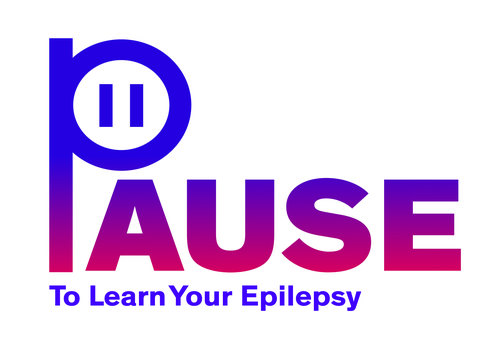PAUSE Epilepsy Project
Overview Heading link

One third of people with epilepsy ― about one million Americans ― have trouble controlling their seizures, even with medication. For many of them, frequent and severe seizures can severely undermine their ability to work, sustain relationships, live independently, and even think clearly. They often encounter stigma and may experience depression. The majority of patients in epilepsy clinics are people with these challenges, yet their seizures and quality of life can be considerably improved with fairly simple self-management skills. For deeply challenged patients, however, learning these skills is difficult. How can health care providers help them?
Our Project Heading link
We are partnering with the Epilepsy Foundation to create a way for this patient population and their caregivers to improve epilepsy self-management. We combine the outstanding online educational resources of Epilepsy.com with a wireless electronic device that allows real-time Web conferencing and personalized education programming for patients and their families. Using this device, the patient, physician, family and nurse collaborate in tailoring the program’s pace and components for the patient’s needs. The patient uses the device at home for 10 to 12 weeks to work through lessons, keep track of seizures, and receive online guidance from a trained educator or nurse. We call this project “Personalized Internet-Assisted Underserved Self-management of Epilepsy (or PAUSE) to Learn About Your Epilepsy”.
Our project aims to empower people with epilepsy to improve the management of their disease, communication with their health care providers, and their quality of life. This project also aims to validate the use of such devices and tools in improving self-management of chronic disease among underserved and disadvantaged populations.
PAUSE program is implemented in 3 phases. In Phase 1, from Fall 2014 to Summer 2015, we developed and tested android application for tablets for tailored approach to epilepsy self-management education. In Phase 2, from 2015 to 2019, we recruit study participants through the University of Illinois at Chicago (UI Health) epilepsy specialty clinic; and In Phase 3, from 2017 to 2019, we recruit study participants from community. Recruitment study participants from community is facilitated by the Epilepsy Foundation of Greater Chicago.
Our hypothesis and hope is that PAUSE to Learn About Your Epilepsy will improve compliance with medication regimens, knowledge about epilepsy, self-efficacy and epilepsy self-management; reduce seizure frequency and emergency room visits; and improve the quality of life for people with epilepsy.
Our Physicians and Scientists Heading link
Jeffrey A. Loeb
Phone:
Email:
Key Personnel Heading link
- Marie Chesaniuk, MA (UIC Clinical Psychology Graduate Student)
- Nadia Nabulsi (Graduate Research Assistant)
Community Partners Heading link
We are partnering with the Epilepsy Foundation, a national nonprofit foundation working to prevent, control and cure epilepsy. The tool in our research project will make use of the excellent educational materials and videos at Epilepsy.com, and we will work with the Greater Chicago chapter to bring this new tool to people with epilepsy who are not patients at UI Health.
Collaborating Nationally Heading link
Under Dr. Pandey’s direction, the Illinois PRC collaborates in a national network of scientists and community partners committed to improving the lives of people with epilepsy. Coordinated by the Prevention Research Center at Dartmouth College, this network, called the Managing Epilepsy Well Network (CDC SIP 14-007), includes the University of Arizona, Case Western Reserve University, Morehouse School of Medicine, New York University School of Medicine, University of Minnesota, and University of Washington as well as the University of Illinois at Chicago.